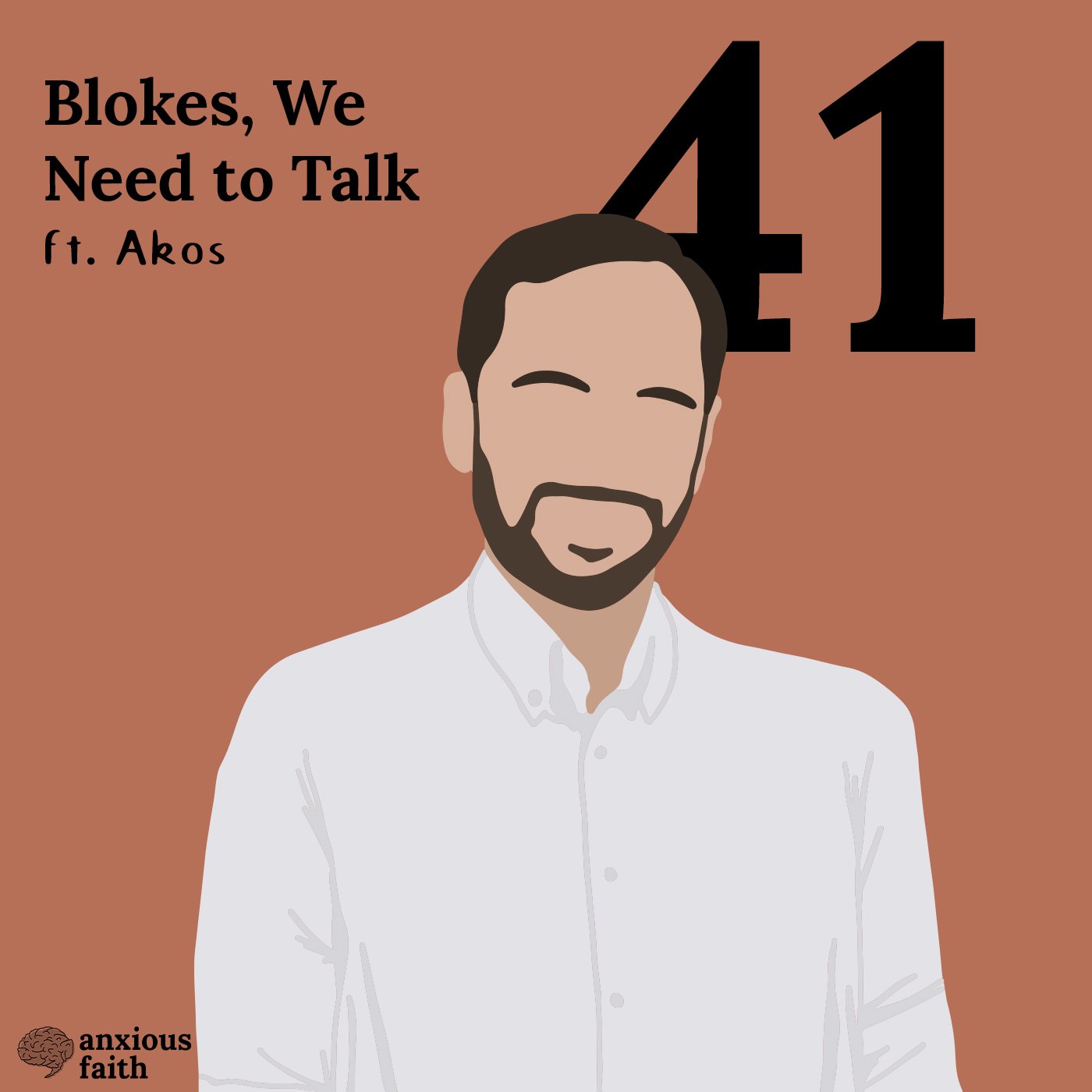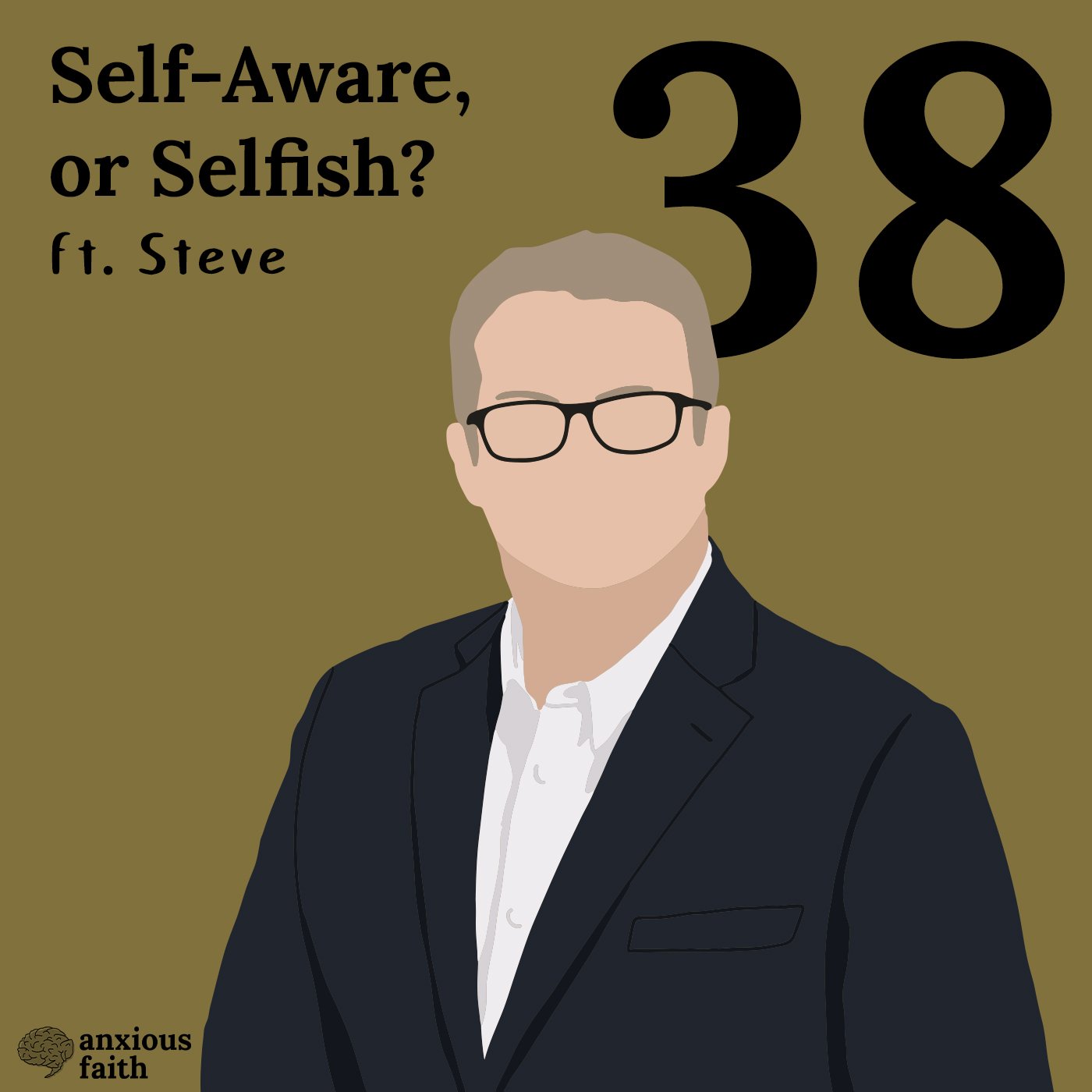A Conversation With An Anxious-Girl-Turned-Counsellor
In the second episode of Season 2, we spoke to Pip, who has struggled with anxiety from a young age. Pip shared with us that although anxiety is still present in her life, she’s learned some ways to lessen its power over her.
Now studying to be a counsellor, Pip has found freedom and hope by allowing her story to be used by God. Pip’s own struggles with anxiety have helped inform her training, and have given her empathy and insight so that she can better serve those she counsels. It’s clear that there is purpose through her struggle, and that God can redeem even the most hopeless of stories and use them for His purpose.
When we spoke to Pip, she shared with us some practical ways that she’s learned to come to terms with her anxiety and use her story to bring hope to others. They are a good reminder for us all!
1. Meditating in the Word
How many times have we been encouraged to ‘meditate’ on God’s Word? As Christians, we can hear this so often that it loses all significance. But what does meditating in the Word actually mean?
For Pip, it wasn’t enough to simply find and memorise Bible verses about anxiety, God’s peace, and her identity. Instead, she had to really seek God’s heart and understand exactly what He was saying through His Word. In Hebrews 12:1-2, one of Pip’s favourite verses, we read:
“...And let us run with perseverance the race marked out for us, fixing our eyes on Jesus, the pioneer and perfecter of faith…”
Pip asked herself, ‘what does fixing our eyes on Jesus look like?’ She found that by meditating on this verse – taking the time to sit and contemplate and reflect – she was able to form a deeper understanding of how focusing on Jesus leads us to peace in His presence. Over time, Pip learned to focus not just on who Jesus is, but also who He has been in her life.
In the same way, we can each grow in our understanding of God’s nature and His heart for us as we spend time in His Word. By reflecting on God’s faithfulness in our lives, it becomes easier to see how He is writing our story for one of redemption and restoration. The more we can appreciate what God has done for us, the more we’ll see Him at work in our current circumstances, however dark they may seem.
2. Learning the Art of Surrender
One of the beautiful things about worshipping an all-knowing, totally sufficient God is that we can be at peace knowing He doesn’t need us to have it all figured out.
When we’re struggling, we’re often tempted to tackle the issue ourselves. Sure, we might talk to God about what we’re going through, maybe even ask for His help, but at the end of the day, we still want to hold onto the issue we’re facing. What God asks of us, though, is to surrender it to Him. Completely.
In Psalm 55 verse 22, David tells us to
“Cast your cares on the Lord and he will sustain you…” Peter says the same in 1 Peter 5:7: “Cast all your anxiety on him because he cares for you.”
The word ‘cast’ used in these verses implies a deliberate action; to cast (or throw) something cannot be done passively. It requires intention.
In the same way, we are called to actively cast our burdens onto God, and by doing so, surrender our need for control. It’s an act of letting go and acknowledging that even though we may not understand why we're struggling, we want to invite Him into that space.
As Pip put it simply in her recent interview, “The healing comes when we give up.” God wants to see us letting go so that He can work through us. When we tell Him ‘God, I can’t carry this on my own’, He tells us ‘Give it to me’. He even promises us rest (Matthew 11:28).
“I don’t have to feel the heaviness of anxiety that I used to feel,” Pip shared. “The more I grow in understanding of who God is and His heart for me, the more I’m able to surrender.”
3. Normalising Vulnerability
These days, “How’s it going?” is something we say with a quick nod of acknowledgement as we walk past someone. We often forget to stop and really ask that question: How are you going?
When we’re honest with others about how we’re doing, not only are we allowing them into our lives, but we’re also giving them a space to share openly with us. In this way, God can use our own experiences of struggle to bless others.
Sometimes, though, we can worry that sharing honestly about how we’re doing will dampen the mood, or make others uncomfortable. We’ve all probably experienced this at one point or another. Say, for example, you’re sitting on the couch at Bible study eating Tim-Tams and waiting for your turn to share about how you’re doing. The person on your left tells a light-hearted story from their week, making everyone laugh. Now it’s your turn.
Will you play it cool and pretend you’re fine? Or will you choose to be vulnerable about what’s happening in your life?
Often, all it takes is for one person to open up before everyone else feels comfortable doing the same. And that’s what vulnerability does; it breeds more vulnerability. Our openness about the things we struggle with invites others to share in our burdens and unload theirs, too. Paul encourages us in Galatians 6:2 to “Carry each other’s burdens, and in this way you will fulfil the law of Christ.”
The kind of vulnerability it takes to share our burdens doesn’t just feel good. It’s Biblical. In Romans 12:15, Paul encourages us to be a community that rejoices with those who rejoice, and mourns with those who mourn. Doesn’t that sound great?
Becoming this kind of community starts with being vulnerable. Do the people in your life know the battle you’re facing?
Allowing God to Use You
Pip says she’s still learning to lean into God’s help, and she recognises this journey takes time. You can’t just show up to a gym one day and expect to be strong the next; strengthening is a process.
Although her journey with anxiety is ongoing, Pip has found that as she meditates on God’s Word, surrenders control and shares her struggles with others, she’s better able to see how God is shaping her – not only by helping her through the anxiety, but by using her story to bless others.
Pip shared with us that while anxiety still has a presence in her life, God has shown her that she doesn’t need to be ‘healed’ of it to be used by Him. There’s great encouragement to be found in Isaiah 43:18-19 where God tells His people:
“Forget the former things; do not dwell on the past. See, I am doing a new thing! Now it springs up; do you not perceive it? I am making a way in the wilderness and streams in the wasteland.”
Sometimes, we simply need to trust that God is doing something in us, even when we can’t see it.
So, whether you’re in the midst of your own mental health challenges or you’re finding your way through them, be encouraged!
God can and will use your story, too.







The aim of psychology isn’t to replace or change our beliefs in God, it’s to help us understand ourselves and our minds better so that we can live a more fulfilling life. That sounds like something Jesus wants for us, right?